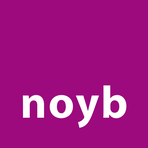The Data Dilemma: NOYB vs. Meta in the EU
May 15, 2025, 5:09 am
In the digital age, data is the new oil. It fuels innovation, drives profits, and shapes our online experiences. But what happens when the guardians of privacy clash with tech giants? The latest showdown involves Meta Platforms and the Austrian advocacy group NOYB, which stands for "None of Your Business." This battle centers on the use of European users' personal data for training artificial intelligence models.
On May 14, 2025, NOYB announced its intention to seek an injunction against Meta. The stakes are high. If successful, this could lead to billion-euro damages claims. The advocacy group argues that Meta's plans to use personal data from Facebook and Instagram users, starting May 27, violate EU privacy laws.
At the heart of this conflict is a simple question: Who owns your data? Meta claims a "legitimate interest" under EU privacy regulations. They argue that using this data is essential for developing AI tools that can benefit users. However, NOYB's leader, Max Schrems, sees this as a thin veil over exploitation. He points out that the European Court of Justice has already ruled against Meta's claims of legitimate interest in targeting users with ads. If that precedent holds, how can Meta justify using personal data for AI training?
The tension is palpable. NOYB has sent a cease and desist letter to Meta, demanding a halt to their plans. They set a deadline of May 21 for Meta to respond. This isn't just a legal battle; it's a fight for the rights of over 400 million European users. If each user were to claim damages of just 500 euros, the total could reach astronomical figures.
Meta has attempted to soften the blow. They announced that users would receive a link to opt-out of data usage for AI training. They also assured that private messages and data from users under 18 would not be included. But is this enough? Critics argue that an opt-out system is inherently flawed. It places the burden on users to protect their own data, rather than requiring companies to seek explicit consent.
The EU has been at the forefront of data protection. The General Data Protection Regulation (GDPR) was a landmark move, setting strict guidelines for how companies handle personal data. Yet, as technology evolves, so do the challenges. AI is a double-edged sword. It can enhance user experiences but also poses significant risks to privacy.
NOYB's position is clear. They advocate for an opt-in system, where users must give explicit consent before their data is used for AI training. This aligns with the spirit of GDPR, which emphasizes user control over personal information. The group also suggests that Meta could use anonymized data, reducing the risk of privacy violations.
The implications of this case extend beyond Meta. It sets a precedent for how tech companies operate in Europe. If NOYB succeeds, it could embolden other advocacy groups to challenge similar practices. The tech industry may need to rethink its approach to data usage.
The clock is ticking. As the deadline approaches, the pressure mounts. Meta faces a potential legal storm. The outcome could reshape the landscape of data privacy in Europe. Will the tech giant adapt, or will it stand its ground?
Public sentiment is on NOYB's side. Many users are becoming increasingly aware of their data rights. They want transparency and control. The tide is turning. Companies that fail to respect user privacy may find themselves on the wrong side of public opinion.
This case also highlights a broader issue: the balance between innovation and privacy. AI has the potential to revolutionize industries, but it must be developed responsibly. Companies must prioritize ethical considerations alongside technological advancements.
As the battle unfolds, one thing is clear: the fight for data privacy is far from over. The stakes are high, and the implications are profound. The outcome will resonate beyond the courtroom, influencing how tech companies engage with users in the future.
In the end, this isn't just about Meta or NOYB. It's about the fundamental rights of individuals in the digital age. It's about who controls our data and how it is used. As we navigate this complex landscape, we must remain vigilant. The fight for privacy is a collective responsibility.
The world is watching. The outcome of this case could set a new standard for data protection. Will it be a victory for privacy advocates, or will it reinforce the status quo? Only time will tell. But one thing is certain: the conversation around data privacy is just beginning. The battle lines are drawn, and the future of our digital lives hangs in the balance.
On May 14, 2025, NOYB announced its intention to seek an injunction against Meta. The stakes are high. If successful, this could lead to billion-euro damages claims. The advocacy group argues that Meta's plans to use personal data from Facebook and Instagram users, starting May 27, violate EU privacy laws.
At the heart of this conflict is a simple question: Who owns your data? Meta claims a "legitimate interest" under EU privacy regulations. They argue that using this data is essential for developing AI tools that can benefit users. However, NOYB's leader, Max Schrems, sees this as a thin veil over exploitation. He points out that the European Court of Justice has already ruled against Meta's claims of legitimate interest in targeting users with ads. If that precedent holds, how can Meta justify using personal data for AI training?
The tension is palpable. NOYB has sent a cease and desist letter to Meta, demanding a halt to their plans. They set a deadline of May 21 for Meta to respond. This isn't just a legal battle; it's a fight for the rights of over 400 million European users. If each user were to claim damages of just 500 euros, the total could reach astronomical figures.
Meta has attempted to soften the blow. They announced that users would receive a link to opt-out of data usage for AI training. They also assured that private messages and data from users under 18 would not be included. But is this enough? Critics argue that an opt-out system is inherently flawed. It places the burden on users to protect their own data, rather than requiring companies to seek explicit consent.
The EU has been at the forefront of data protection. The General Data Protection Regulation (GDPR) was a landmark move, setting strict guidelines for how companies handle personal data. Yet, as technology evolves, so do the challenges. AI is a double-edged sword. It can enhance user experiences but also poses significant risks to privacy.
NOYB's position is clear. They advocate for an opt-in system, where users must give explicit consent before their data is used for AI training. This aligns with the spirit of GDPR, which emphasizes user control over personal information. The group also suggests that Meta could use anonymized data, reducing the risk of privacy violations.
The implications of this case extend beyond Meta. It sets a precedent for how tech companies operate in Europe. If NOYB succeeds, it could embolden other advocacy groups to challenge similar practices. The tech industry may need to rethink its approach to data usage.
The clock is ticking. As the deadline approaches, the pressure mounts. Meta faces a potential legal storm. The outcome could reshape the landscape of data privacy in Europe. Will the tech giant adapt, or will it stand its ground?
Public sentiment is on NOYB's side. Many users are becoming increasingly aware of their data rights. They want transparency and control. The tide is turning. Companies that fail to respect user privacy may find themselves on the wrong side of public opinion.
This case also highlights a broader issue: the balance between innovation and privacy. AI has the potential to revolutionize industries, but it must be developed responsibly. Companies must prioritize ethical considerations alongside technological advancements.
As the battle unfolds, one thing is clear: the fight for data privacy is far from over. The stakes are high, and the implications are profound. The outcome will resonate beyond the courtroom, influencing how tech companies engage with users in the future.
In the end, this isn't just about Meta or NOYB. It's about the fundamental rights of individuals in the digital age. It's about who controls our data and how it is used. As we navigate this complex landscape, we must remain vigilant. The fight for privacy is a collective responsibility.
The world is watching. The outcome of this case could set a new standard for data protection. Will it be a victory for privacy advocates, or will it reinforce the status quo? Only time will tell. But one thing is certain: the conversation around data privacy is just beginning. The battle lines are drawn, and the future of our digital lives hangs in the balance.

